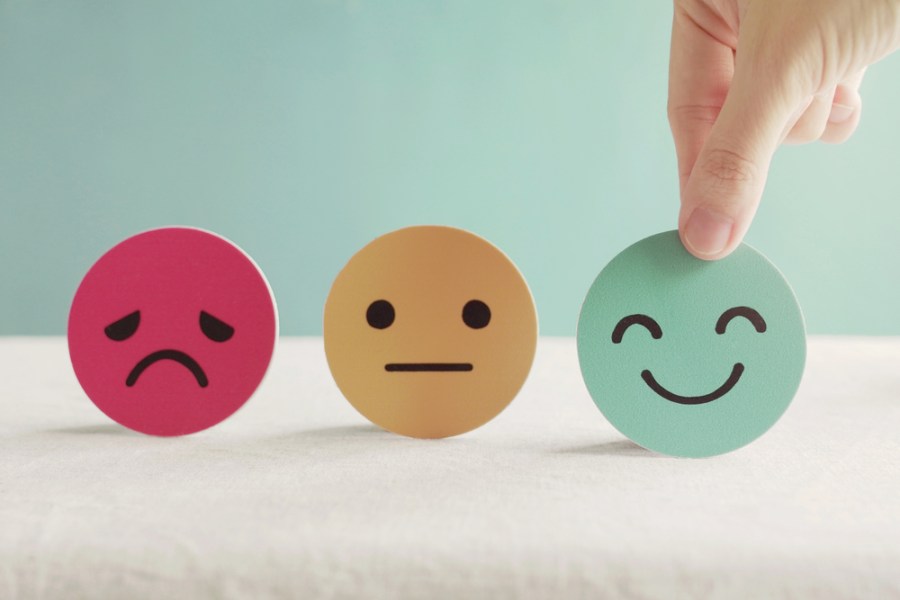Feeling a bit down in the dumps or struggling to focus? Nutritional Advisor Emma Bulbeck from Bio-Kult has these top tips on managing your emotions during these challenging times.
This year has been a challenging one for us all, bringing a huge amount of uncertainty and disruption to our daily lives. A lack of routine and structure can eventually start to affect our mental health. Especially those more vulnerable, who may suffer already with anxiety and depression.
Therefore, it is now more important than ever to take the necessary steps to support our mental wellbeing.
1. Support healthy blood sugar levels

The food choices you make and your mood are very much connected. Not just your mood but your energy levels also. For example, processed and refined foods are often high in simple sugars that our body digests very quickly, which causes a spike in our blood sugar levels, followed by a subsequent slump
This can cause sudden mood swings and over time possible hormonal imbalances. Long term blood sugar dysregulation is thought to cause inflammation in the body. Evidence is now suggesting that depression may be an inflammatory disorder.
Therefore, it is advisable to eat a well-balanced diet, which consists of mostly fruits and vegetables, good quality protein and fats, and complex carbohydrates. For example, instead of a white bread sandwich for your lunch, try a quinoa salad. These complex carbohydrates release energy into the body more steadily so will support healthy blood sugar levels, energy and mood.
2. Get outdoors for a vitamin D boost
Not only does vitamin D contribute towards the normal function of the immune system, it is also important for mood since it encourages serotonin production (our happy hormone). Studies suggest that exposure to bright light is a possible approach to managing both seasonal and non-seasonal depression.
There is also an association between vitamin D status and the gut microbiome, and taking a live bacteria supplement, has been shown to increase circulating vitamin D levels. Live bacteria supplements are also showing other positive effects for mental health, so supplementing with a good quality product, such as Bio-Kult S. Boulardii (RRP £14.99 from Bio-Kult) which thanks to the inclusion of vitamin D3 contributes to the normal functioning of the immune system, is recommended.
Make the most of your garden and outdoor space. Try to get outside during the hours of 9 am and 4 pm when the sun is brightest. Do remember to remain social distance as per the government guidelines.
3. Do some form of exercise daily

Why not get your kids and household involved? Studies suggest that exercise may modulate serotonin and other neurotransmitter levels in the brain. Exercising may help add structure and routine to your days also. A daily run or walk, or exercise in the garden is ideal. There are lots of online videos or apps which can guide you through all levels of fitness so that you can find the right one for you. Or why not find a peaceful room in your house to do an online yoga class. Exercise can help give you a sense of purpose and achievement which is fantastic for our mental health.
4. Connect with yourself
Try journaling, mediation, yoga, deep breathing exercises. You may have some great ideas to make note of or some thoughts and feelings you want to get out onto paper. If any of the above doesn’t feel suitable for you why not attempt to connect with yourself through; gardening, learning a new skill, cooking, baking, reading, drawing or painting. Take some time out. This year has given us the time to stop, slow down and listen. An opportune time for reflection, for all of us.
5. Hug your loved ones or pets

If you are living with a partner or family in your home or a pet, you are lucky that physical contact is still available, so make the most of it! Hugging has been shown to lower our cortisol levels, which is our stress hormone and to release endorphins which make us feel good and lift our mood.4 If you live alone why not try connecting on facetime regularly. Not just with your family, perhaps you have friends you miss and want to reconnect with to. Who knows they might need you just as much as you need them.
6. Limit exposure to Social Media
It is times like this when there is actually a lot of value in social media for all its drawbacks since it does connect people. It also allows businesses to stay in touch with their customers when they might not be able to do otherwise.
However, if you are using your phone and social media sites more often, it can have a negative impact on your mental health. It may be wise to set yourself a daily limit or create a new account and follow people that inspire you. Everyone’s lives are very different, and we mustn’t compare our life to someone else’s depiction of what their life is like. You don’t know what’s really happening to them behind closed doors.
7. Reach out to those in need
Unfortunately, in times of panic and uncertainty, naturally, we choose to look out for ourselves and our immediate family, sparing little thought for others. However, many of us are very fortunate and could also give help to others who may be struggling. In these times, hope is found in a sense of community and togetherness. Having purpose and feeling appreciated and valued are wonderful ways to help improve our mental wellbeing.







